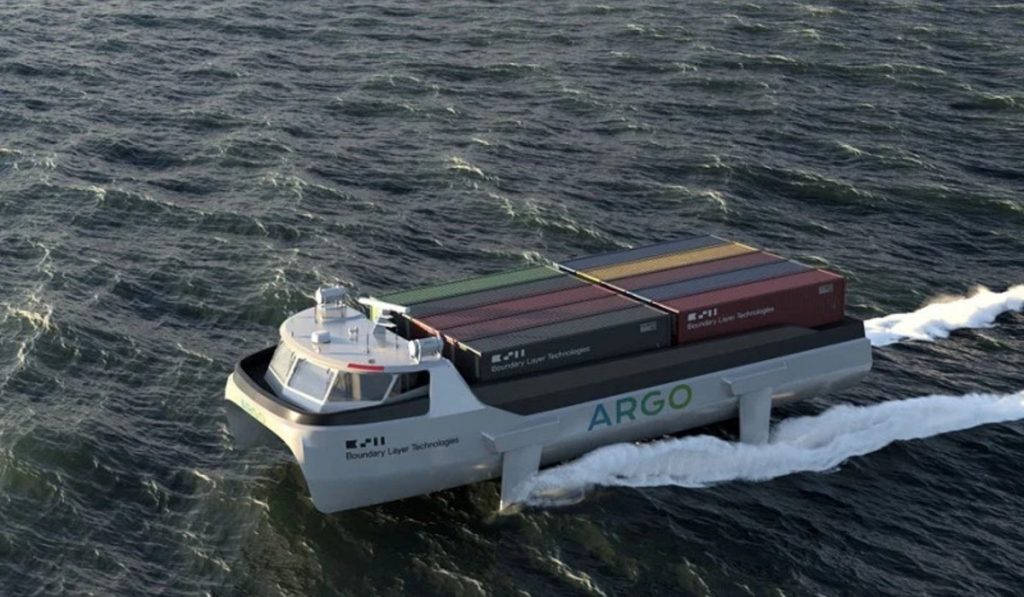California-based marine technology startup Boundary Layer Technologies has unveiled its operational strategies and engineering design for a zero-emissions hydro foiling containership, which will be known as Argo.
The aim is to develop low- to no-emission cargo ships that are poised to take to the seas, reducing carbon pollution and providing alternatives to expensive and polluting air freight along key intra-Asia trade lanes.
Their ships utilize hydrogen power and hydrofoil technology, and B9 Shipping, which is pioneering biogas- and wind-powered vessels, are seeking to reduce the negative impact of international shipping operations on the climate.
In 2021, the international shipping industry accounted for 735 tons of carbon pollution, roughly 2% of the global total. The International Energy Agency classifies the shipping industry as “Not on track” to meet its “Net Zero by 2050 Scenario.”
To get on track, the sector would have to maintain its current pollution levels until 2025 (despite expectations that it will exceed them), then reduce them by 15% from 2025 to 2030.
According to Boundary Layer Technologies, this performance would allow door-to-door transit times just 15 to 24 hours slower than air freight and at half the expense. The vessel will be powered by green hydrogen, as well as fuel cells that will be kept in a liquid state inside its two hulls. At 110ft long and with a 20 twenty-foot equivalent unit (TEU) capacity, Argo will deploy hydrofoil technology.
In a statement, Boundary Layer Technologies said: “A hydrofoil is a submerged wing device used to lift the hull from the water to reduce drag. The company has already completed the development of key pieces of Argo’s technology stack and is on track to perform full-scale subsystem tests by the end of 2023.”
In comparison with a conventional ship, this vessel will use a fraction of the fuel required to travel at the same high speed. The ARGO ship has a gross payload capacity of 200 tons, a range of up to 1,500 nautical miles, and a cruise speed of 40 knots, which is twice that of conventional containerships.
The company is currently selecting launch partners for an intra-Asia ARGO service launching in Q3 2024 to ship finished goods and components for major electronics manufacturers in the region. It has future plans to launch a larger vessel on a transpacific service for which it has a $180 million letter of intent from the digital freight forwarder, Flexport.

